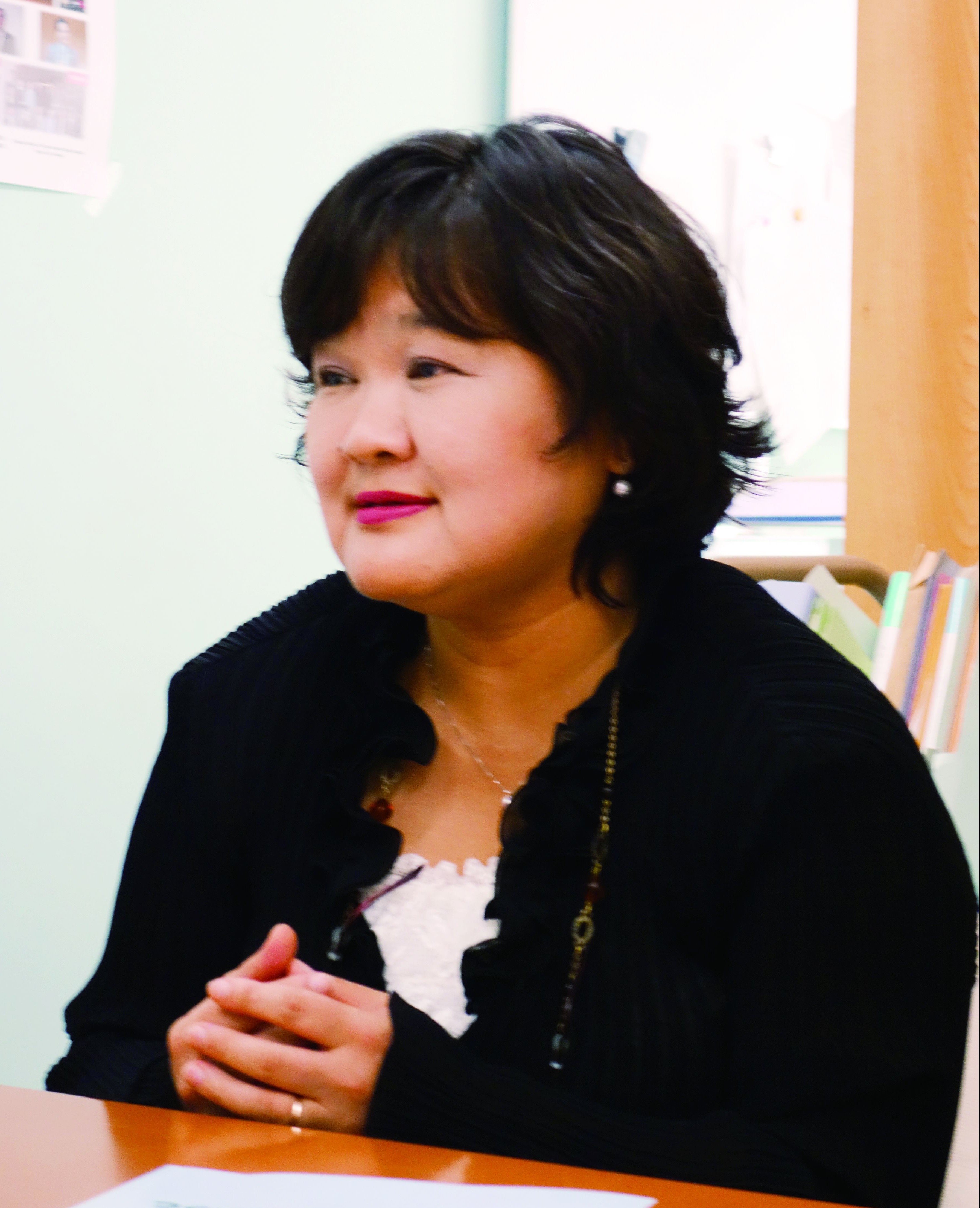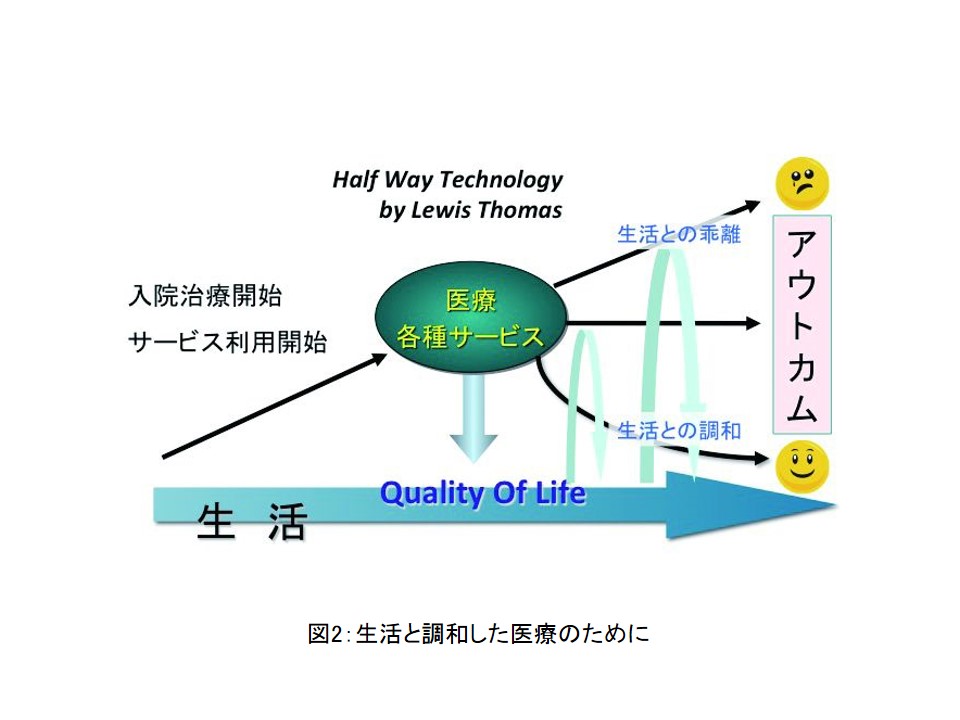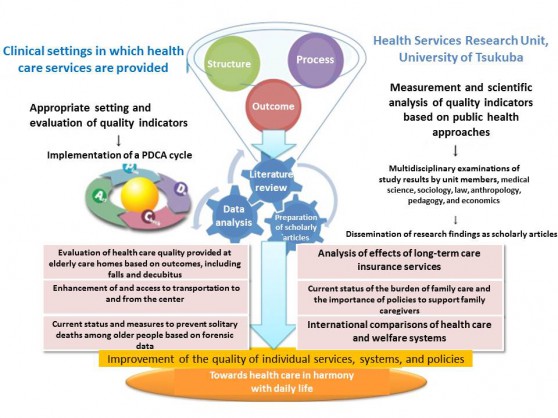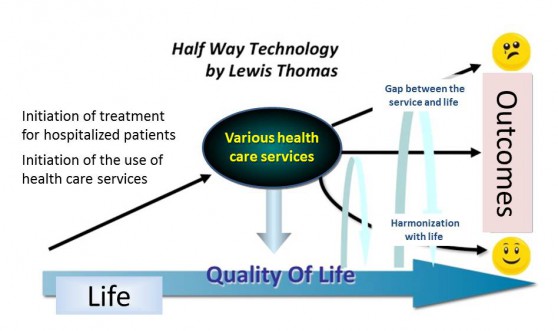キーワード:介護、医療、福祉、保険制度、質評価
 急速な高齢化が進む日本。この高齢化社会に、どのような質の保健医療福祉サービスを提供していくかについて、世界中の関心が集まっています。いま、これらのサービスは、必要とする人たちに質を保ったまま行き渡っているのでしょうか。本リサーチユニットでは、様々な視点からサービスの質を科学的に評価・分析することで、保健医療福祉サービスの質の向上を目指しています。
急速な高齢化が進む日本。この高齢化社会に、どのような質の保健医療福祉サービスを提供していくかについて、世界中の関心が集まっています。いま、これらのサービスは、必要とする人たちに質を保ったまま行き渡っているのでしょうか。本リサーチユニットでは、様々な視点からサービスの質を科学的に評価・分析することで、保健医療福祉サービスの質の向上を目指しています。
国内初のヘルスサービスリサーチ専門研究拠点
ヘルスサービスリサーチとは、ストラクチャー(構造)、プロセス(過程)、アウトカム(成果)の3概念を基本に、現場のデータ・国や地方自治体などの調査データの活用などを通して、保健医療福祉に関するサービスの質を科学的に評価・分析し、また、医学・経済学・社会学などの学際的な視点からも考察する研究 です(図1)。研究成果は現場や国に提言し、サービスの質の向上につなげます。ヘルスサービスリサーチは、欧米では、専門の学術雑誌も複数あり、公衆衛生学の一部として位置づけられていますが、日本では、まだ十分に根付いていません。そこで、私たちは、国内初のヘルスサービスリサーチ専門研究拠点を設置し、高齢化など日本が抱える保健医療福祉サービスの課題の解決に取り組んでいます。

「生活と調和した医療」のための実証研究
現在私たちは、主に高齢者の介護制度に関する研究を進めており、これまでの分析結果から、医療との連携、各種サービスの質の評価・向上、そして、介護者支援制度の充実化が重要であると考えています。今後は、国の介護保険利用データを用いた大規模な分析により、科学的根拠をさらに積み重ね、政策提言にもつなげていきたいと思っています。また、ケアを必要とするすべての人という意味で小児、とくに障がい児にも研究を展開し、ケアする人も対象に研究を進めています。
私たちは、質の高い保健医療福祉サービスを、生活と寄り添ったかたちで必要な人たちに切れ目なく届けることが重要と考えています。しかし、現在、社会格差や縦割り行政などにより、制度やサービスの隙間で、医療の提供がQOLの高い生活と乖離している現状があります。こうした実態をデータにして実証研究し、提言することでその隙間を埋めて、「生活と調和した医療」を実現していきたいと思っています(図2)。

社会への貢献・実績
● つくば市高齢者福祉推進会議委員長を3期務め、市と大学と協力して市民ニーズ調査の実施および分析を行い、根拠に基づく政策提言に貢献
● 日本の皆保険50周年を記念し、世界に日本の制度を発信したランセット日本特集において高齢者介護部分を担当
● 「ヘルスサービスリサーチ入門――医療をサービスとして科学する(仮)」を、2014年2月発行予定(下記講義のテキスト)
● 「臨床家のためのヘルスサービスリサーチ入門」を、一般公開土曜集中講義として東京キャンパスで開講予定(2014年2月)
● チリ政府研究所からの博士課程留学生とともに、日本の介護保険について分析した博士論文を出版することが決定(Springer社)Trends and Factors in Japan’s Long-term Care Insurance System: Japan’s 10-year Experience. Pedro Olivares-Tirado Nanako Tamiya Springer Briefs 2014
● 人文社会系学際ユニット「家族のための総合政策」との共同で、グローバルエイジングセンター設立準備中(本学プレ戦略経費による)
(取材:平成25年7月17日)
Delivering High-Quality Health Care and Welfare Services for All People Who Require Them : Health Services Research
Unit members : 阿部 智一 Tamaoka, Akira Sankai, Tomoko Yamagishi, Kazumasa Yamanaka, Katsuo 寺本 信嗣 Morita, Nobuaki Mizuno Tomomi Maeno Tetsuhiro Takeda, Kazunori Tokuda, Katsumi Takeda, Fumi Honda, Katsuya
Key words:Long-term care, health care, welfare, insurance system, quality assessment
http://tsukuba-hsr.org/index.php?id=76
 Japan has a rapidly aging population. The world’s attention is focused on the quality of health care and welfare services provided in this aging society. Are such services really available for people who require them with a consistently high quality? Our research unit aims to improve the quality of health care and welfare services through scientific evaluation and analysis of their quality from various perspectives.
Japan has a rapidly aging population. The world’s attention is focused on the quality of health care and welfare services provided in this aging society. Are such services really available for people who require them with a consistently high quality? Our research unit aims to improve the quality of health care and welfare services through scientific evaluation and analysis of their quality from various perspectives.
Japan’s first center of excellence for health services research
Health services research is a multidisciplinary scientific field that evaluates/analyzes the quality of health care and welfare services, and examines it with medical, economic, and sociological perspectives by utilizing onsite and national/local research data, based on three concepts: structure, process, and outcome (Figure 1). Research findings are fed back to clinical settings and the government to improve the quality of health care services. There are several academic journals in health services research in Europe and the United States, and it is defined as part of public health. In Japan, however, it is not yet deeply understood. Therefore, we established Japan’s first center of excellence for health services research, and have been striving to overcome issues related to health care and welfare services in Japan.

Figure1: Framework for the study of health services research
Experimental studies for “health care in harmony with daily life”
We are currently conducting studies on the long-term insurance system for older people. Based on the analysis of previous research findings, we consider that it is important to cooperate with the field of health care, evaluate/improve the quality of various health care services, and improve the caregiver support. We must accumulate more scientific evidence in order to propose new policies by conducting a large-scale analysis using national data on the use of the long-term care insurance system in future. Since we have been conducting a study focusing on people who require care, our focuses have extended to children and caregivers including children with disabilities.
We consider that it is important to keep delivering high-quality health care and welfare services to those who require them by fully understanding their daily lives. However, the present health care services are far from facilitating a high quality of life due to institutional voids created by a social divide and vertically-divided administrative systems. We must fill such voids, and realize “health care in harmony with daily life” by empirically examining such situations and feeding back findings to clinical settings and the government (Figure 2).

Figure 2: Towards health care in harmony with daily life
Social contributions and achievements
● I served on the board at the conference on the promotion of social welfare for elderly people living in Tsukuba City for 3 terms. With the cooperation of the city and university, we investigated and analyzed citizens’ needs, and contributed to evidence-based policies.
● I contributed an article on elderly care to the Lancet that featured Japan’s universal health coverage system which marked the 50th anniversary in 2011.
● “Introduction to health services research – Scientific examination of health care as a service (tentative)” will be published.
● Saturday public lecture series on “Introduction to health services research for medical practitioners” was held on the Tokyo campus (February 2014).
● A doctoral thesis which analyzed Japan’s long-term care insurance system in collaboration with a Ph.D. candidate from Chile was published (Springer). “Trends and Factors in Japan’s Long-Term Care Insurance System: 10-Year Experience. Pedro Olivares-Triado, Nanako Tamiya, Springer Briefs, 2014”
● Center for Global Aging Tsukuba Preparation Office was established in collaboration with an interdisciplinary research unit of humanities and social sciences, “Total policy for family” (using the school budget for pre-strategic initiatives).
